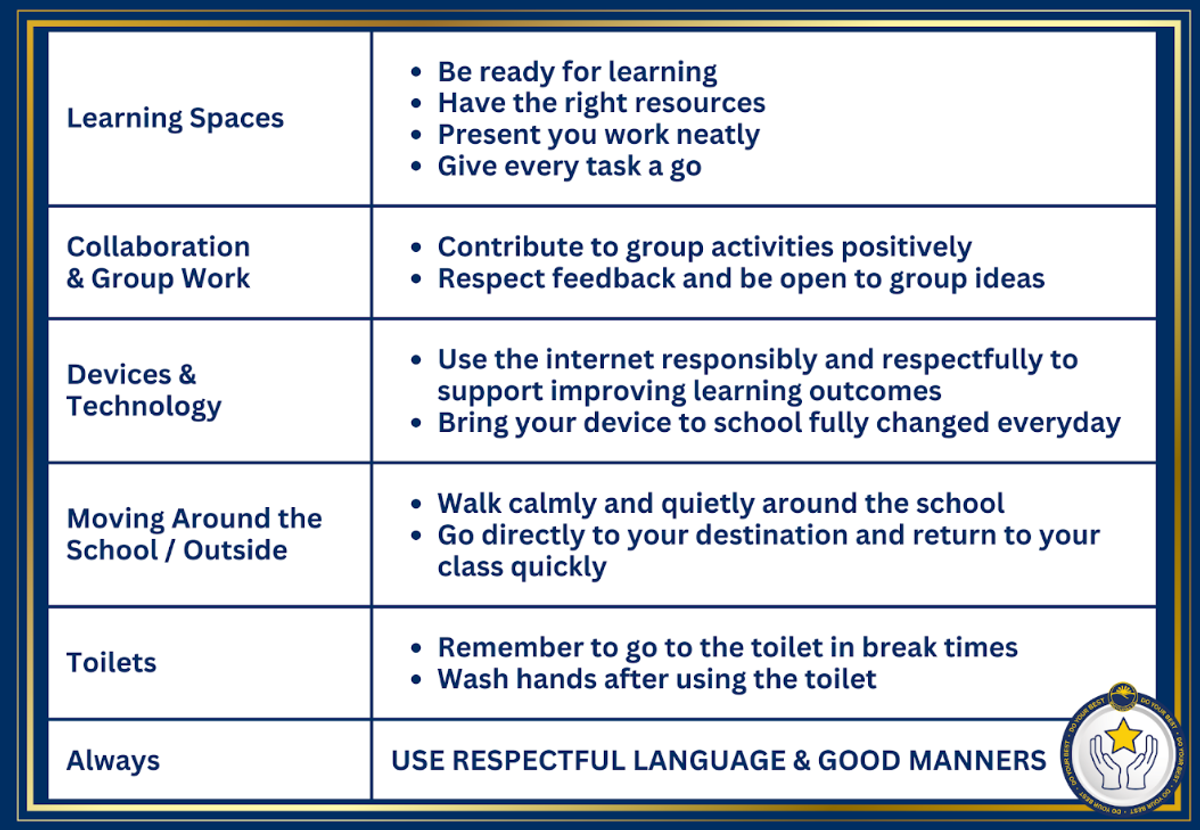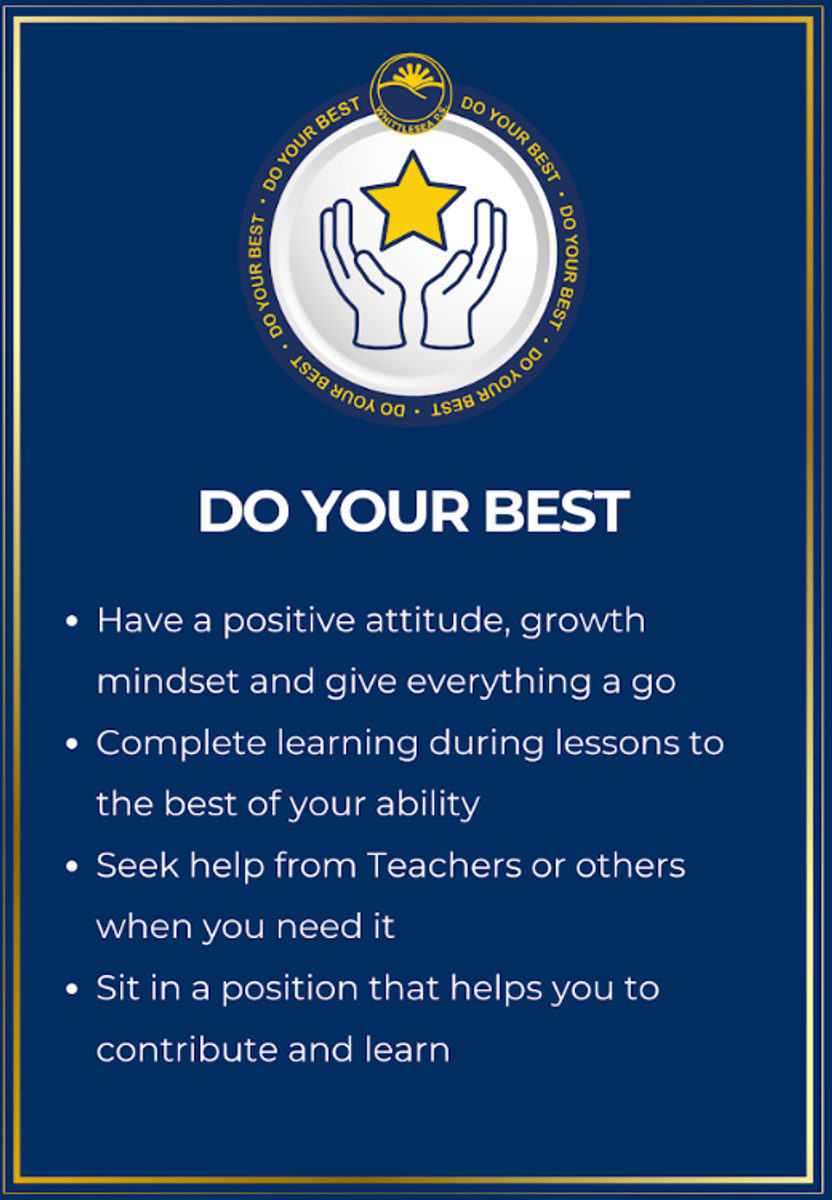Wellbeing
Fiona Dandie & Robert Pain

Wellbeing
Fiona Dandie & Robert Pain
This week, our Whittlesea Primary School staff focused on our school expectation of 'Do Your Best'. This important schoolwide expectation focuses on how our students show the best versions of themselves in all areas of the school. Our student-friendly posters, which are displayed in all classrooms, explain how students can demonstrate the expectation of 'Do Your Best'.
These include:
We then break down what 'Do Your Best' can look like in different areas of the school or in various aspects of learning.
For example:
This week, all staff members have written many Golden Tickets with a focus on how all students have shown the expectation of 'Do Your Best'.
Well done to all students who have received a Golden Ticket this week for this expectation.




Anxiety is a normal emotion that everyone experiences. It can help us stay alert and prepared. But when anxiety becomes too strong or too frequent, it can interfere with a child’s learning, friendships and happiness.
Some children may not have the words to describe how they feel. You might notice:
| 😟 | Avoiding school, social events or activities |
|---|---|
| 🤒 | Tummy aches, headaches or feeling unwell often |
| 🌙 | Trouble sleeping or having frequent nightmares |
| 😠 | Irritability or sudden emotional outbursts |
| ❓ | Asking for constant reassurance (“Will I be okay?”) |
| 🌀 | Difficulty concentrating, appearing restless |
🧘 | Teach calming strategies: Try deep breathing, gentle stretching, drawing or listening to music.
🔄 | Stick to routines: Predictability helps children feel safe and secure.
👂 | Listen and validate: Say things like “I can see this is really worrying for you.”
🐾 | Take small steps: Encourage brave behaviour gradually (e.g., staying at school for half a day, then a full day).
❤️ | Model calm responses: Children learn how to manage emotions by watching us.
If anxiety is stopping your child from enjoying school, making friends, or trying new things — it’s okay to get help.
Start with a chat with your child’s classroom teacher or contact the Wellbeing Team. We're here to support you and your child.
🌐 | Beyond Blue: beyondblue.org.au
🌐 | Raising Children Network: raisingchildren.net.au
📞 | Kids Helpline (ages 5–12): 1800 55 1800
🌐 | Be You (Mental Health in Schools): beyou.edu.au
If you have any concerns or questions, please don’t hesitate to get in touch with your child’s teacher or the Wellbeing Team.